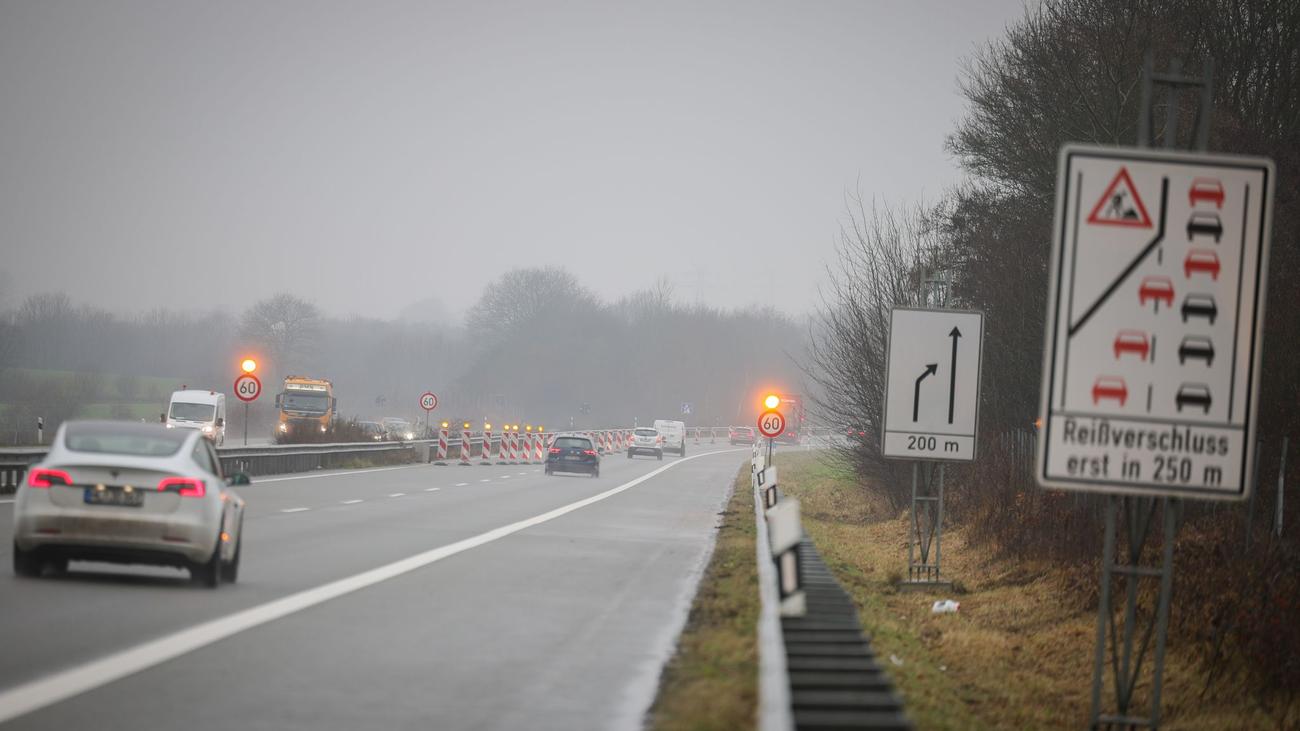Crucial Talks: A20 Autobahn Expansion and the Environment
The proposed expansion of Germany's A20 Autobahn is sparking heated debate, pitting economic development against environmental concerns. This crucial project, impacting the Baltic Sea region, necessitates a careful balancing act between infrastructure needs and ecological preservation. This article delves into the ongoing discussions, examining the arguments for and against the expansion, and exploring potential solutions for a sustainable outcome.
The A20 Autobahn Expansion: A Boon for the Economy?
Proponents argue the A20 expansion is vital for boosting economic growth in the region. Improved infrastructure, they claim, will:
- Reduce transportation times and costs: Faster travel will facilitate trade and commerce, benefiting businesses and consumers alike.
- Stimulate tourism: Easier access to the Baltic coast will attract more tourists, creating jobs and revenue.
- Improve connectivity: The expansion will better connect the region to the rest of Germany and Europe, fostering economic integration.
Supporters point to the potential for job creation during the construction phase and the long-term benefits of enhanced economic activity. They often highlight the need to modernize Germany's infrastructure to remain competitive in the European Union.
Economic Impact Studies and Their Limitations
Several economic impact studies have been commissioned to assess the potential benefits of the A20 expansion. However, critics argue these studies often underestimate the environmental costs and fail to account for potential negative impacts on local communities. Transparency and accessibility of these studies are also frequently questioned, hindering independent analysis and public scrutiny.
Environmental Concerns: A Delicate Ecosystem at Risk
Opponents express serious reservations about the environmental consequences of the A20 expansion, citing potential harm to:
- Protected Habitats: The construction could encroach on sensitive ecosystems, including valuable wetlands and forests.
- Biodiversity: Habitat fragmentation and disruption could threaten numerous plant and animal species.
- Water Quality: Increased runoff and pollution from construction and increased traffic could impact water bodies.
- Air Quality: Higher traffic volumes could worsen air pollution, contributing to respiratory problems and climate change.
These concerns are amplified by the A20's proximity to the Baltic Sea, a particularly vulnerable ecosystem.
Mitigation Efforts and Their Effectiveness
The project developers have proposed several mitigation measures, such as:
- Green bridges and wildlife crossings: These structures aim to minimize habitat fragmentation and allow wildlife to safely cross the expanded highway.
- Noise barriers: To reduce noise pollution impacting nearby communities and wildlife.
- Sustainable construction practices: Employing environmentally friendly materials and techniques.
However, the effectiveness of these measures is debated. Critics argue that they may not be sufficient to fully offset the negative environmental impacts. Independent environmental impact assessments are crucial to validate these claims.
Finding a Sustainable Path Forward
The debate over the A20 Autobahn expansion highlights the complex interplay between economic development and environmental protection. A balanced approach is necessary, one that acknowledges the potential economic benefits while minimizing the environmental footprint. This might involve:
- Thorough Environmental Impact Assessments (EIAs): Independent and comprehensive EIAs are vital to assess the project's potential consequences accurately.
- Public Consultations and Transparency: Open and transparent dialogue with stakeholders, including local communities and environmental groups, is essential.
- Exploration of Alternative Solutions: Investigating alternative transportation solutions, such as improving existing rail networks or investing in public transport, could reduce the reliance on road expansion.
- Sustainable Financing and Procurement: Employing green financing mechanisms and prioritizing sustainable procurement practices.
The A20 Autobahn expansion decision will set a precedent for future infrastructure projects in Germany and beyond. Prioritizing transparency, comprehensive environmental assessments, and public engagement will be crucial in charting a sustainable course forward. The future of this project hinges on finding a solution that balances economic progress with ecological responsibility. The conversation continues, and finding common ground is paramount.
